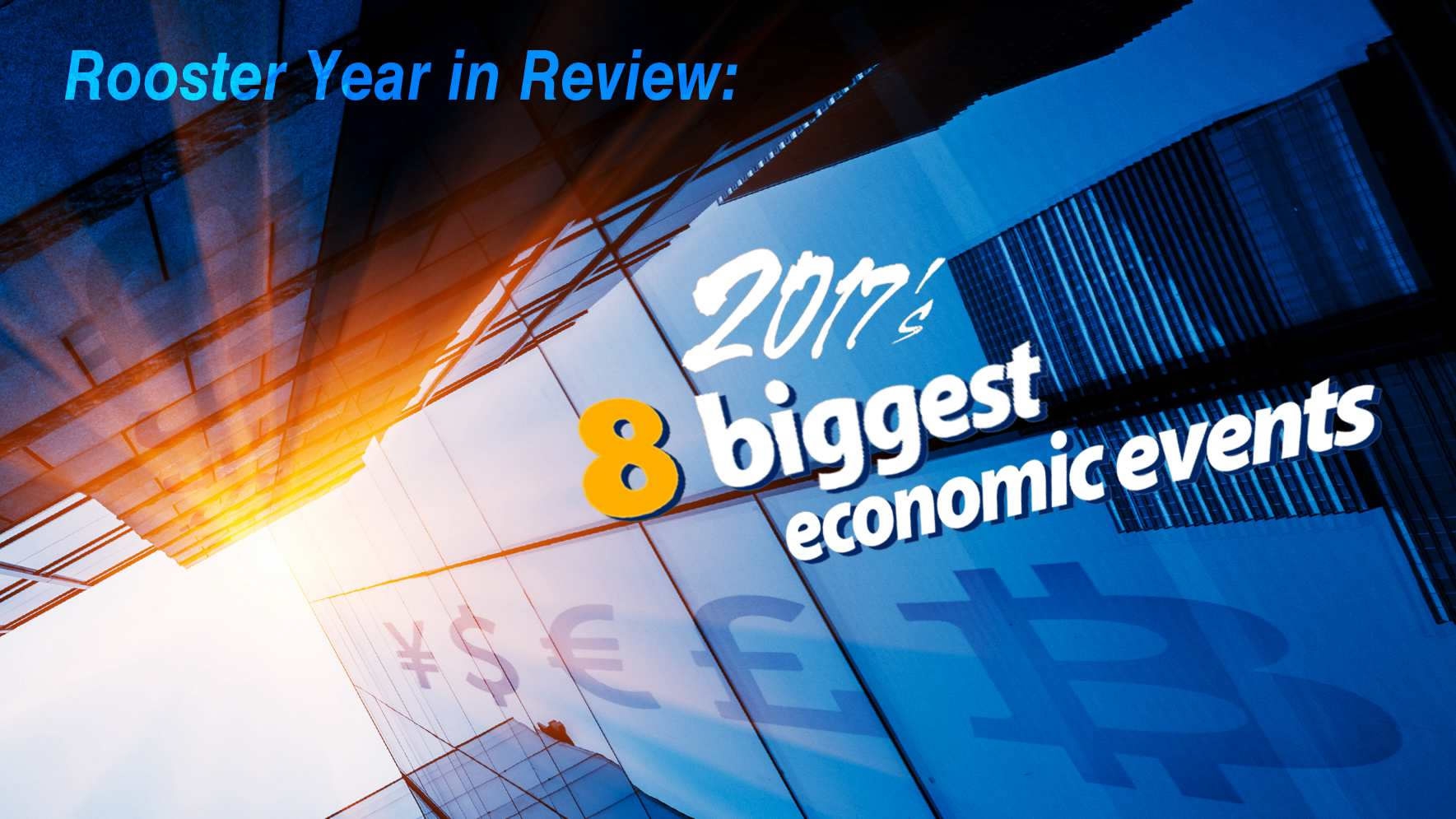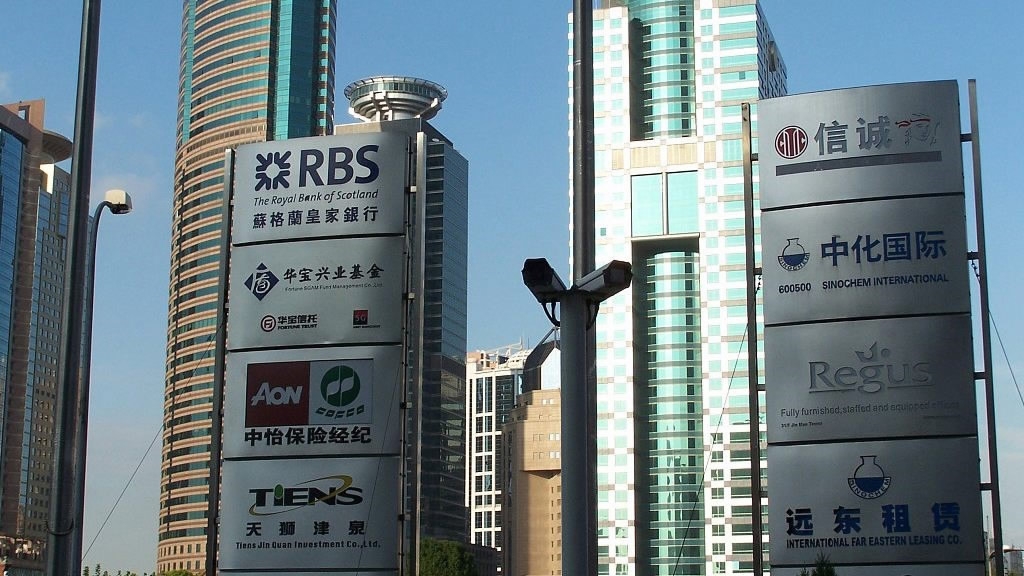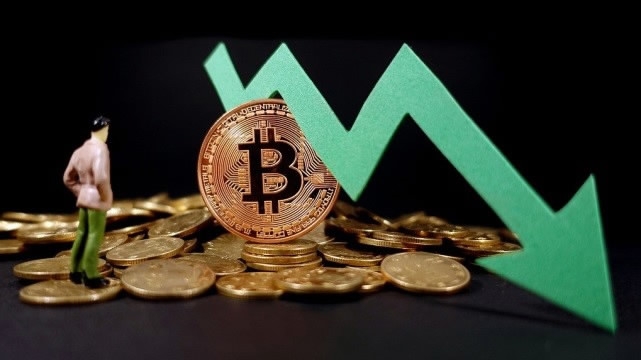Black Swan, Gray Rhino, Minsky Moment – these are just some of the buzzwords that leading economists pushed around in 2017. But what were the key events that really changed the economic landscape in 2017?
China’s 19th CPC National Congress
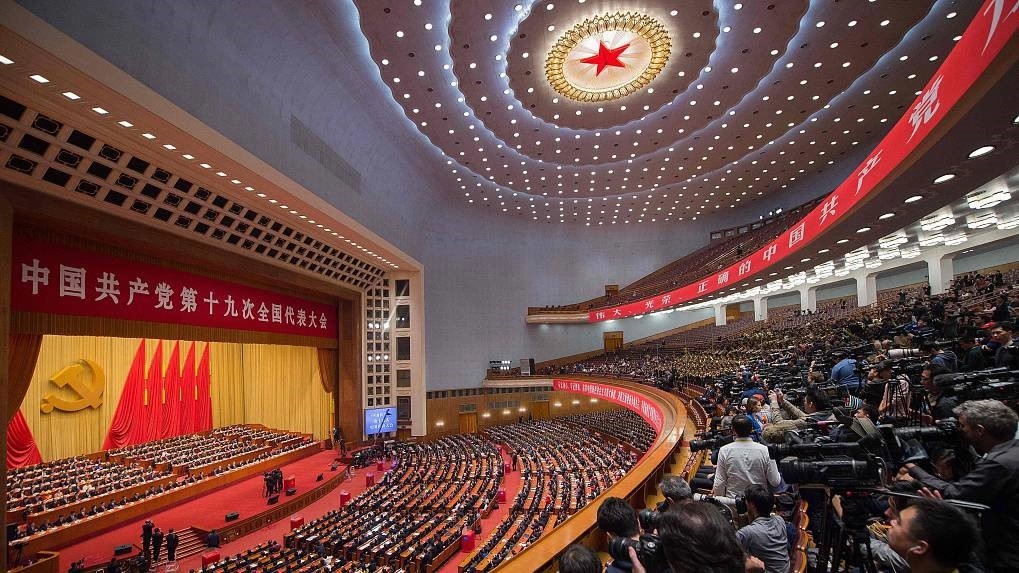
The 19th CPC National Congress is in session at the Great Hall of People./VCG photo
The 19th CPC National Congress is in session at the Great Hall of People./VCG photo
Yes, you read that correctly. Despite being a major political event, 2017’s national congress saw the economy play a major role. Xi Jinping, General Secretary of CPC Central Committee and president of the world’s second largest economy, said he wanted to turn China into a global leader by 2050. Analysts say that means there will be more active outbound investment and a more open domestic market.
China lifts limits on bank foreign ownership
Xi’s words were echoed in November by removing foreign ownership limits on banks, while allowing foreign companies to take majority stakes in non-bank financial ventures. Previously, foreign capital could hold no more than 20 percent of shares in Chinese banks. Foreign investors can now control as much as 51 percent of shares in brokers, funds, and futures companies following the reform.
The US pulls out of the TPP
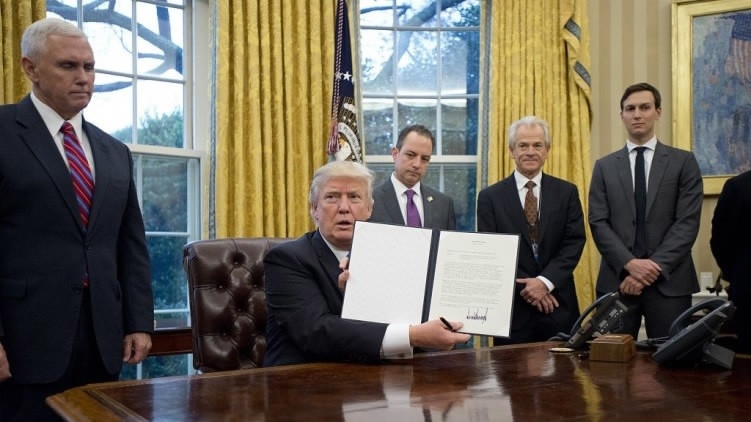
U.S. Donald Trump holds up an executive order withdrawing the U.S. from the Trans-Pacific Partnership (TPP) in the Oval Office of the White House in Washington, D.C., U.S., on Monday, Jan. 23, 2017./VCG photo
U.S. Donald Trump holds up an executive order withdrawing the U.S. from the Trans-Pacific Partnership (TPP) in the Oval Office of the White House in Washington, D.C., U.S., on Monday, Jan. 23, 2017./VCG photo
The United States under President Donald Trump is putting America first, and his administration began with a bold step by dropping out of the Trans-Pacific Partnership Agreement in January. After Trump signed the executive order to confirm the withdrawal he said, "Great thing for the American worker what we just did."
US passes tax reform
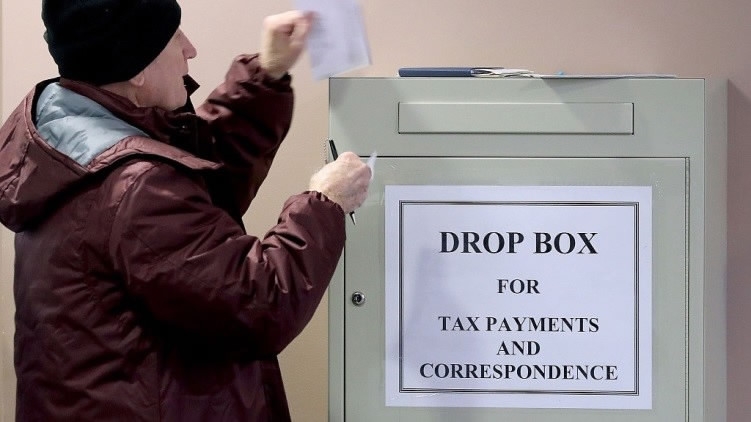
Residents fill out paper work and use locked drop boxes to pay their taxes at the Fairfax County Government Center December 28, 2017 in Fairfax, Virginia./ VCG photo
Residents fill out paper work and use locked drop boxes to pay their taxes at the Fairfax County Government Center December 28, 2017 in Fairfax, Virginia./ VCG photo
Congress passed America’s most sweeping tax reforms in decades on December 20, and Trump signed it just before Christmas, describing it as a gift to the American people. Experts predict that the measure will increase company profits, but cause the federal deficit to balloon.
UK, EU reach breakthrough in Brexit talks
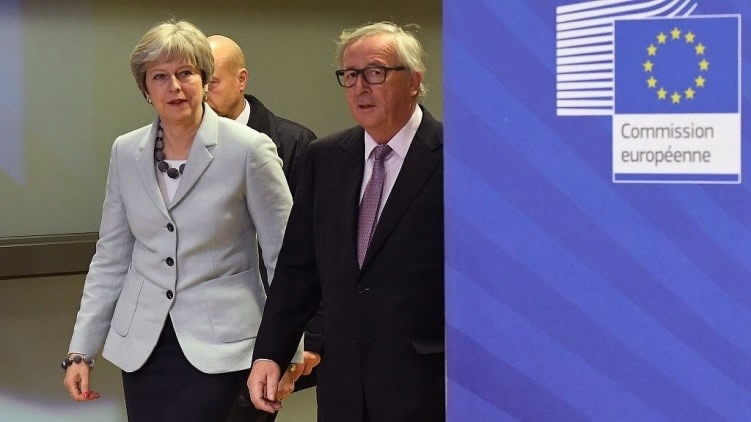
British Prime Minister Theresa May (L) is welcomed by European Commission Jean-Claude Juncker at European Commission in Brussels on December 8, 2017./ VCG photo
British Prime Minister Theresa May (L) is welcomed by European Commission Jean-Claude Juncker at European Commission in Brussels on December 8, 2017./ VCG photo
British Prime Minister Theresa May struck a last-minute deal on the Irish border, the rights of EU citizens and the divorce bill with the European Union in December, moving Brexit talks on to the next level and raising prospects that a “hard Brexit” can be avoided.
Central banks start cycle of raising rates
The US Federal Reserve raised interest rate three times in 2017 ahead of an expected trio of rate increases in 2018, after Janet Yellen’s term as chair of the Fed expires in February. The European Central Bank is slowly cutting back asset purchases, while China is increasing rates through open market operations.
OPEC continues oil cuts
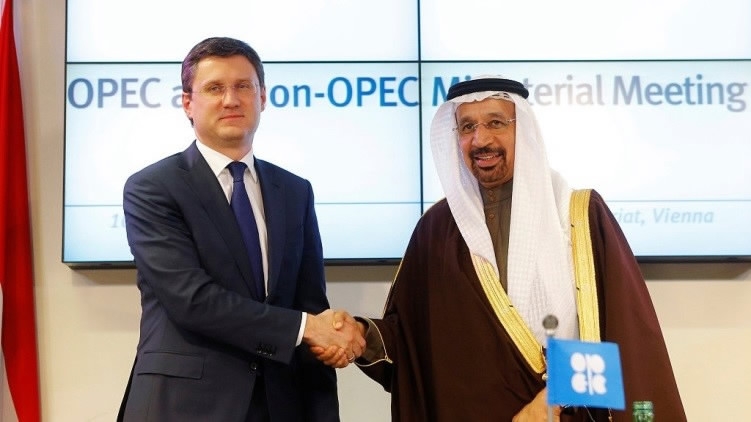
Russia's Energy Minister Alexander Novak (L) and Saudi Arabia's Energy Minister Khalid al-Falih shake hands after a news conference following a meeting of the Organization of the Petroleum Exporting Countries (OPEC) in Vienna, Austria, December 10, 2016./VCG photo
Russia's Energy Minister Alexander Novak (L) and Saudi Arabia's Energy Minister Khalid al-Falih shake hands after a news conference following a meeting of the Organization of the Petroleum Exporting Countries (OPEC) in Vienna, Austria, December 10, 2016./VCG photo
The Organization of Petroleum Exporting Countries, or OPEC, and its allies outside of the organization, agreed to continue oil production cuts until the end of 2018. The pact on production cuts began in 2016 amid falling prices, and global inventories have since dropped while prices have risen.
However analysts say Saudi Arabia may drop out of the agreement to fix its national finances, and the US' vast reserves of shale oil may force OPEC to scrap its commitment.
Bitcoin
When you talk about economics in 2017, you have to mention Bitcoin. Like it or not, the value of the virtual currency experienced a rollercoaster ride in the past year. But, it still remains on the margins of finance.
Analysts are more bullish on the underlying blockchain technology behind Bitcoin, which is set to go on to become a new standard for digital and data transactions in the coming years.

